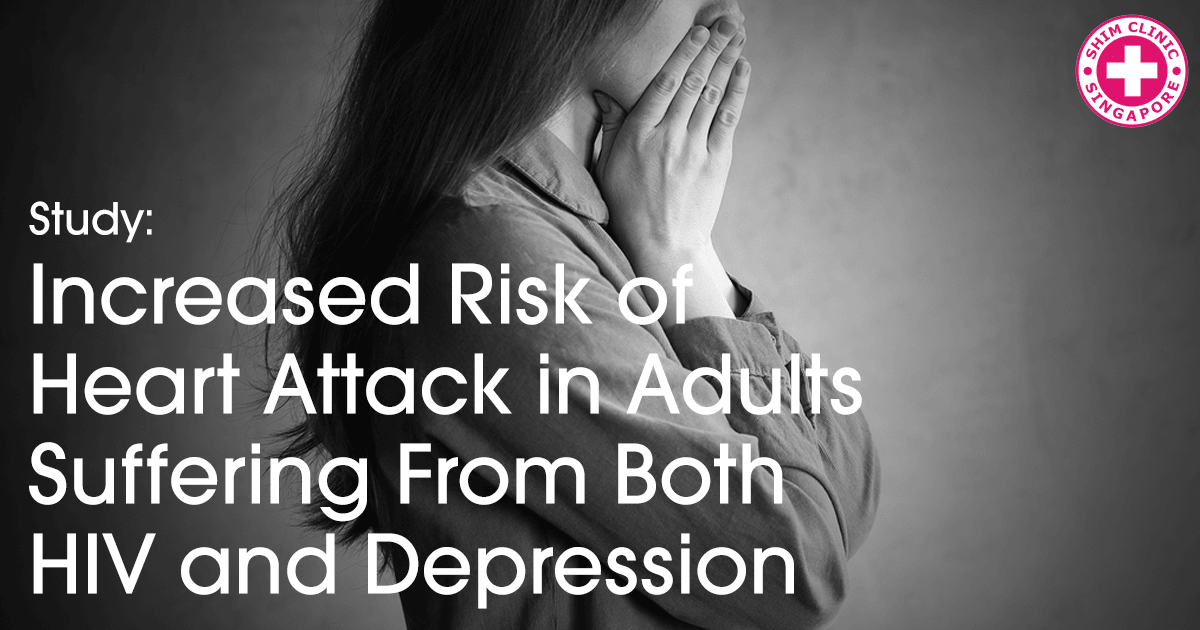The effectiveness of antiretroviral therapy, ART, has considerably increased the lifespan of HIV infected people. However, a study published by JAMA Cardiology says that from a study population of 26000 HIV infected adults, they are at a higher risk of Cardiovascular Disease (CVD). CVD is known to be the leading cause of death for such a population.
The study continues to say that from the population, those with depression disorders such as MDD, (Major Depressive Disorder) have a 40% to 60% chance of developing CVD. In addition, the study also points out those HIV-infected adults are at a 50% risk for Acute Myocardial Infarction (AMI) than those who are not infected with the virus.
CVD, Depression and HIV
Another study conducted by Matthew S. Freiber from the Vanderbilt University School of Medicine, Nashville, Tenn., and his colleagues between 1998-2003 studied 26,114 HIV-infected participants drawn from the Department of Veterans Affairs in the US.
The participants were part of the Veterans Aging Cohort Study that took place from April 2003 to December 2009. The purpose of the study was to find out if depression was independently associated with CVD among those infected with HIV.
19% of the participants were found to have major depressive disorders at the start of the study. Of those with MDD, the average age was 47 years and 48 years for those without the depression disorder. 490 Acute Myocardial Infarction (AMI) or heart attack events took place during the period of study.
When CVD risk factors and HIV-specific factors for demographics were adjusted, the study reports that those with MDD and are infected by HIV had a 30 % greater chance for having a heart attack than did those infected by the virus but without MDD. Variables such as substance abuse or dependence, kidney disease, hepatitis C infection and hemoglobin levels were further adjusted and the rise in AMI risk was marginally reduced to 25%.
Results from the study suggest that it is indeed possible for MDD to be independently associated with CVD among those that are infected with HIV. The results also report an immediate need to identify risk factors and primary prevention ways for CVD in HIV.
Lack of Research
The lack of research in this area creates a need for further epidemiologic and mechanistic research that includes women with HIV. Moreover, clinical trials should be done on HIV-infected adults with depression to help in the evaluation of the effect of high-quality depression management on CVD risk indicators and incident events in them.
The researchers also suggest that in order to reduce CVD morbidity and mortality in HIV-infected adults, more research should be done in the area that could lead to the identification of a prevalent and novel risk factor for CVD and a new primary prevention approach for the same.
Continued research in the HIV/AIDS area increases the chances of finding a lasting cure, an effective vaccine as well as a better way of managing the virus. Currently, thanks to research and continued progress, we so already have preventive treatments like HIV PEP to stop infection within 72 hours of exposure to the virus as well as PrEP which is the closest thing we have to a vaccine right now. Visit your nearest STD Clinic right now for a HIV test and other STD tests if you suspect exposure or if you are experiencing any of the HIV Symptoms. For those living with HIV, you need to be careful and take good care of yourselves while keeping all the risk factors of CVD at bay if possible.

